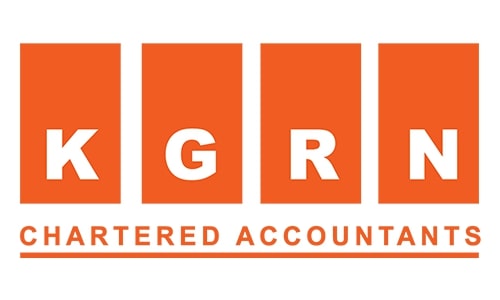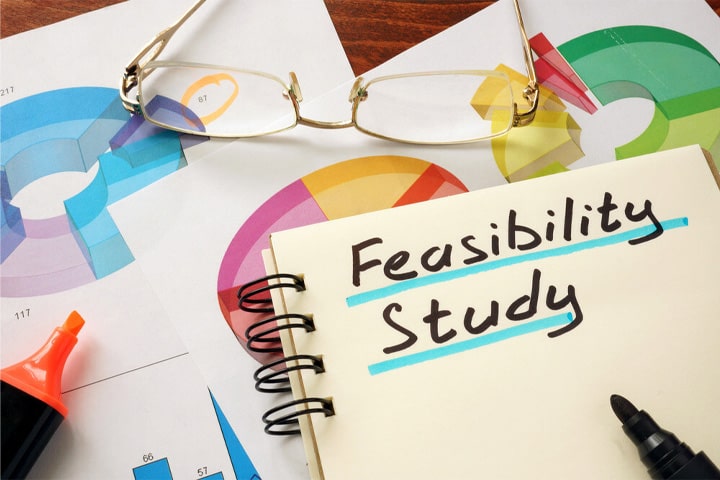The UAE’s strategic location at the crossroads of continents, coupled with its commitment to fostering a culture of innovation and entrepreneurship, has solidified its position as a global business hub. From the towering skyscrapers of Dubai to the cultural richness of Abu Dhabi, the UAE offers a diverse and prosperous landscape for businesses of all sizes and sectors. However, navigating the intricacies of a new market, especially one as dynamic as the UAE, requires careful planning and a deep understanding of the local landscape.
This is where a feasibility study comes in. Think of it as a business roadmap, guiding you through the intricacies of establishing your venture in the UAE. A feasibility study is an in-depth analysis that evaluates the potential success of your business idea. It takes a comprehensive look at the market, your competition, finances, and operational considerations.
By investing in a feasibility study, you gain valuable insights that minimize risk, maximize your chances of success, and ultimately, empower you to make strategic decisions for your business in the UAE. So, whether you’re launching a cutting-edge tech startup in Dubai or a unique retail concept in Abu Dhabi, a feasibility study is your strategic first step towards turning your business dream into a reality. If you want a quality business feasibility service in UAE you must devote the time and the money to hire an experienced organizational consultant. KGRN helps you in hiring the best feasibility consultants in the UAE to make business plans and to conduct a feasibility service with accurate feasibility reports!
Why Conduct a Feasibility Study in the UAE?
The UAE presents a tempting proposition for entrepreneurs. However, venturing into any new market comes with inherent challenges. A well-crafted feasibility study acts as a shield against these challenges, offering a multitude of benefits:
- Reduced Risk: The UAE market boasts a unique blend of cultures and consumer preferences. A feasibility study delves deep into this landscape, identifying potential roadblocks and opportunities. It analyzes competitor strategies, regulations, and market trends, giving you a clear understanding of the playing field. This foresight allows you to proactively address challenges and develop contingency plans, ultimately minimizing risk and safeguarding your investment.
- Informed Decision Making: Imagine navigating a bustling marketplace blindfolded. A feasibility study acts as your guide, providing crucial data and insights to empower informed decision-making. It analyzes market demand for your product or service, estimates financial viability, and assesses operational feasibility. With this wealth of information at your fingertips, you can make confident decisions about everything from resource allocation to marketing strategies.
- Investor Confidence: Securing funding is often a crucial step for businesses. A comprehensive feasibility study acts as a powerful tool to attract investors. It demonstrates a commitment to due diligence and showcases a well-researched and strategic approach. Investors appreciate the transparency and data-driven insights provided by a feasibility study, increasing their confidence in the potential success of your venture in the UAE.
Detailed Process of Conducting a Feasibility Study
The detailed process of conducting a feasibility study typically involves the following steps:
Conduct Preliminary Analysis
The preliminary analysis helps determine if the feasibility study is justified. This step involves identifying the problem or opportunity that the proposed project aims to address. It also involves assessing if there is a market demand that exceeds the supply, and if the project can successfully compete against existing alternatives. The preliminary analysis helps uncover potential obstacles and determines if the feasibility study is justified.
Define Scope
After the preliminary analysis, the scope of the proposed project is defined. This step involves establishing the objectives and parameters of the project. It helps determine the criteria and constraints that will be used to assess the feasibility of the project.
Conduct Market Research
The market research component involves analyzing the demand for the proposed project and assessing the competitive landscape. This step helps identify the market demand, the potential benefits of the project, and the factors that could affect its success. The market research helps determine if the project is feasible from a market perspective.
Perform Financial Assessment
The financial assessment involves analyzing the costs and potential returns associated with the proposed project. This step helps determine the financial viability of the project and establish the costs and resources required for its success. The financial assessment helps determine if the project is financially feasible.
Assess Feasibility
The assessment of the project’s feasibility involves analyzing the findings from the market research and financial assessment. This step helps determine if the project is viable from a market and financial perspective. The assessment helps identify potential obstacles and establish if the project is feasible.
The process of conducting a feasibility study helps organizations determine if a proposed project is viable and beneficial. By analyzing the market demand and financial implications, the feasibility study provides insights into the potential success of the project.
Elements of a Feasibility Study:
The following are the elements of a feasibility study consultants:
- Project Overview: This section provides a detailed description of the project, including its objectives, scope, and purpose. It outlines what the project aims to achieve and provides an overview of its intended outcomes.
- Market Feasibility: This element assesses the potential demand for the product or service offered by the project in the target market. It involves analyzing market trends, competition, target audience, customer preferences, and market size. This analysis helps determine whether there is a market need for the project and if it has the potential for success.
- Technical Feasibility: The technical feasibility examines whether the project can be implemented from a technical perspective. It evaluates the availability and suitability of the necessary technology, infrastructure, resources, and expertise to execute the project. This analysis helps identify any technical challenges or limitations that may arise during the project’s implementation.
- Financial Feasibility: Financial feasibility focuses on assessing the project’s financial viability. It involves analyzing the costs associated with the project, including initial investment, operational expenses, and potential revenues. Financial projections and cash flow analysis are used to determine whether the project is financially sustainable and can generate a satisfactory return on investment.
- Organizational Feasibility: This element evaluates the project’s compatibility with the existing organizational structure and capabilities. It examines the resources, skills, and expertise required to implement and operate the project within the organization. This analysis helps identify any organizational constraints or gaps that need to be addressed for successful project execution.
Benefits of Using a Feasibility Study Consultant in the UAE
The UAE market presents exciting possibilities, but navigating its intricacies can be a complex task. This is where a qualified feasibility study consultant becomes your invaluable partner. Here’s how partnering with a consultant can significantly benefit your business venture in the UAE:
- Expertise: UAE feasibility study consultants possess a deep understanding of the local market dynamics. They stay current on market trends, consumer preferences, and the ever-evolving regulatory landscape. This specialized knowledge ensures your feasibility study is not only comprehensive but also tailored to the specific nuances of the UAE market.
- Streamlined Process: Conducting a thorough feasibility study requires expertise in research, analysis, and financial modeling. A consultant streamlines this process, leveraging their experience to efficiently gather data, conduct interviews, and compile a clear and concise report. This allows you to focus on your core business idea while the consultant handles the technical aspects of the study.
- Objectivity: As an entrepreneur, you’re naturally passionate about your business idea. A consultant brings an objective perspective to the table. They can critically assess your concept, identify potential roadblocks, and suggest alternative strategies. This unbiased evaluation ensures your feasibility study offers a realistic picture of your business’s potential in the UAE.
- Credibility and Confidence: A professionally conducted feasibility study, prepared by a reputable consultant, adds credibility and weight to your business plan. This is particularly valuable if you’re seeking funding from investors or banks. A well-developed study demonstrates your commitment to due diligence and strengthens your ability to secure financial backing for your venture.
- Cost Savings: While the upfront cost of hiring a consultant exists, it can ultimately save you money in the long run. A well-crafted feasibility study can help you avoid costly mistakes by identifying potential pitfalls early on. Furthermore, consultants can leverage their existing network of contacts to help you secure resources and services at competitive rates.
- Time Efficiency: Conducting a thorough feasibility study can be a time-consuming undertaking. Consultants can expedite the process by utilizing their established research methodologies and readily available resources. This allows you to focus your valuable time on refining your business concept and developing your go-to-market strategy.
- Access to a Network: Reputable consultants often have a well-established network of contacts within the UAE business community. This network can be invaluable for connecting you with potential partners, suppliers, and other key stakeholders. These connections can significantly accelerate your business development efforts in the UAE.
- Industry-Specific Knowledge: Many feasibility study consultants specialize in specific industry sectors within the UAE. By partnering with a consultant who has experience in your particular industry, you gain access to in-depth knowledge of the competitive landscape, regulatory requirements, and best practices unique to your field. This industry-specific expertise ensures your feasibility study is highly relevant and actionable.
- Ongoing Support: A good consultant doesn’t simply deliver a report and walk away. They understand the importance of ongoing support throughout the business development process. Many consultants offer post-study consultations to answer questions, address unforeseen challenges, and help you refine your business plan based on the feasibility study’s findings.
How to write feasibility reports?
Writing a well-structured and informative feasibility report is crucial for making informed decisions about project viability. Here’s a step-by-step guide to help you write effective feasibility reports:
1. Define the Problem or Opportunity:
- Clearly state the reason for the feasibility study. Is it a new project idea, an existing problem requiring a solution, or an opportunity for optimization?
- Briefly describe the context and background information relevant to the subject.
2. Determine the Scope:
- Specify the boundaries of your study. What aspects of feasibility will you be analyzing? This could include technical, economic, operational, scheduling, and legal aspects.
- Define the deliverables of your report, such as recommendations, budget estimations, or risk assessments.
3. Conduct Research and Analysis:
- Gather information from various sources like data, interviews, surveys, and industry reports. Analyze the information systematically to assess the feasibility of different solutions.
- Consider both qualitative and quantitative factors, ensuring your analysis is well-rounded and objective.
4. Evaluate Alternatives:
- Identify multiple potential solutions to the problem or opportunity.
- For each solution, conduct a thorough evaluation considering its advantages, disadvantages, costs, benefits, and potential risks.
- Use clear and consistent evaluation criteria to compare and contrast different options.
5. Recommend the Best Solution:
- Based on your analysis, recommend the solution that seems most feasible and best suited to address the problem or opportunity.
- Justify your recommendation with clear arguments and supporting evidence from your research.
6. Outline the Implementation Plan:
- Provide a high-level overview of the steps needed to implement the recommended solution.
- Define key milestones, timelines, and resource requirements for successful implementation.
7. Summarize the Benefits and Costs:
- Clearly present the potential benefits and costs associated with the recommended solution. This could include financial costs, timeframes, resource allocation, and potential long-term impacts.
- Use visual aids like tables or charts to represent complex data effectively.
8. Write the Report:
- Organize the information gathered in previous steps into a cohesive and well-structured report.
- Use clear and concise language, avoiding technical jargon when possible.
- Ensure the report is formatted consistently and professionally with clear headings, tables, and figures.
9. Proofread and Revise:
- Carefully proofread the report for accuracy, grammar, and clarity.
- Ensure the report is tailored to your target audience, addressing their specific needs and concerns.
- Consider feedback from relevant stakeholders and incorporate their insights for improvement.
By following these steps and utilizing the helpful tips, you can create a thorough and informative feasibility report that effectively analyzes and presents your findings, aiding in making sound decisions about any project or opportunity.
Types of Feasibility Studies
Study of Technical Feasibility
This study evaluates an organization’s technical resources and competencies in relation to project execution. It examines factors such as supply chain effectiveness, necessary facilities, production capacity, and regulatory compliance. The objective is to determine whether the project’s technical components can be implemented successfully.
Study of Economic Feasibility
This analysis focuses on financial viability and determines the required capital, lists project costs, and explores possible funding sources. It includes revenue estimates and financial analysis to evaluate the project’s profitability and return on investment (ROI).
Study of Legal Feasibility
This assessment verifies adherence to relevant laws and regulations. It involves reviewing the legal criteria the project must satisfy to ensure all components are legally sound and can be executed without violating the law.
Study of Operational Feasibility
This study evaluates a project’s suitability for integration into the organization’s current operational framework. It considers user feedback and operational requirements while assessing the feasibility of maintaining and running the project post-implementation.
Making a Feasibility Study Schedule
This study focuses on the timeframes required to complete the project. It assesses whether the project can be finished within the allotted time, which is essential for maintaining business continuity and meeting consumer demands, and evaluates whether the proposed deadlines are reasonable.
The Role of the Feasibility Consultant in Dubai, UAE
A performance consultant is an expert who assists businesses, organizations, and government agencies in determining the likelihood of a request or transaction being successful. After conducting thorough investigations and analysis to assess the financial sustainability, effectiveness, and economic feasibility of the project, they present their results and suggestions to the relevant stakeholders. The services provided assist individuals in making informed decisions across a broad range of endeavors, such as mergers and acquisitions, new product creation, and expansion planning.
How KGRN Team helps you?
Dubai’s KGRN is a trusted accounting firm that provides services worldwide. Taxation and accounting specialists ensure openness and no hidden fees. They advise and deliver on time with a team of experts. KGRN has many customers and provides quick updates, ensuring pleasure. Transparency is key to their top Dubai monthly accounting services.
Organizations need feasibility studies to assess project or company viability. It evaluates technical capabilities, financial ramifications, regulatory requirements, market demand, and operational resources to determine the project’s success. This thorough analysis aids decision-making, resource allocation, and risk minimization.
Feasibility studies improve project planning, resource efficiency, stakeholder confidence, and regulatory compliance. A well-executed feasibility study guides organizations to project success and commercial growth. This crucial stage helps firms overcome obstacles, reduce risks, and seize chances for long-term success.
FAQs:
What are the main elements to consider in a feasibility study?
A feasibility study should include five key components: economic, marketing, technical, financial, and management feasibility. Each component assesses different aspects of the project, making it crucial to evaluate all five to make informed decisions about the project’s direction.
What should researchers evaluate when assessing the feasibility of a study?
Researchers need to consider their own identities and characteristics, as well as any potential limitations related to time and financial resources when evaluating the feasibility of their research questions. It’s important that the research question holds significance for the researcher, social scientists, the target population, and potential funding bodies.
What are the seven steps involved in performing a feasibility study?
The process of conducting a feasibility study involves seven key steps:
- Conduct a preliminary analysis.
- Prepare a projected income statement.
- Conduct a market survey.
- Plan the business organization and operations.
- Prepare an opening day balance sheet.
- Review and analyze all data.
What are the critical factors to consider during a feasibility study?
When performing a feasibility study, several critical factors must be considered, including the marketability of the product or service, the level of competition, the financial stability of the company, the technology required, the resources needed, and the potential return on investment (ROI).





